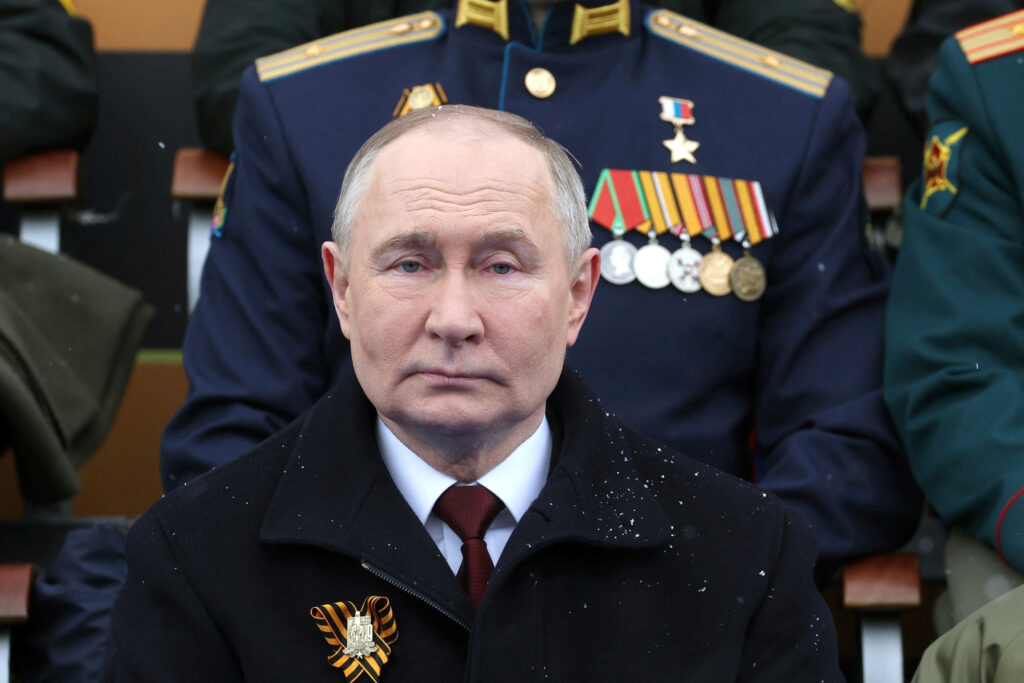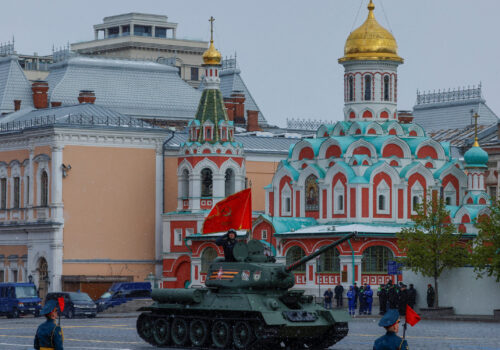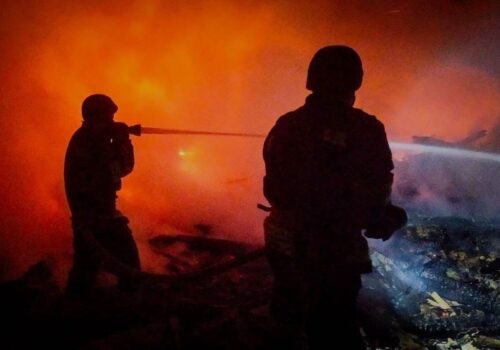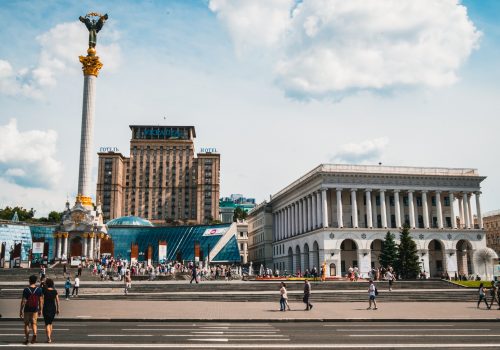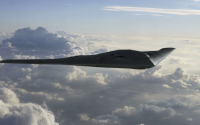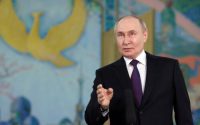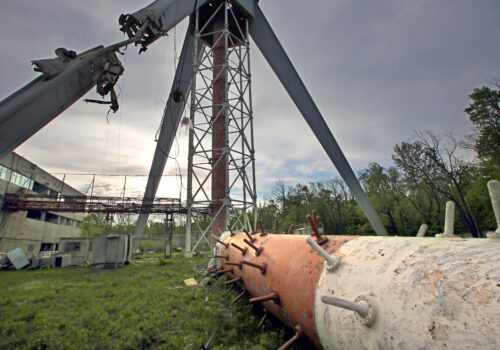
Putin appoints economist as defense minister as Russia plans for long war
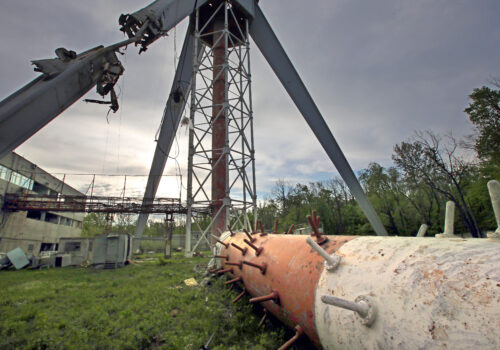
Vladimir Putin has appointed technocrat economist Andrei Belousov as Russia’s new defense minister in a shake-up that underlines his determination to wage a long war of attrition against Ukraine.
The relatively unknown Belousov replaces long-serving Sergei Shoigu, who will now take up a new post as Secretary of Russia’s National Security Council. Shoigu had led the Defense Ministry since 2012. Known as both a Putin loyalist and a personal friend of the Russian dictator who accompanied him on hunting holidays, he is the most senior figure to be dismissed since the start of Russia’s full-scale invasion of Ukraine in February 2022.
While Shoigu’s tenure in office coincided with Russian military success stories such as the 2014 occupation of Ukraine’s Crimean peninsula and the 2015 Russian intervention in Syria, his reputation had been severely tarnished in recent years by the poor performance of the Russian army in Ukraine. The many battlefield setbacks suffered in Ukraine have been particularly embarrassing for Putin, who has long pointed to the revival of Russia’s military strength as one his greatest achievements.
Stay updated
As the world watches the Russian invasion of Ukraine unfold, UkraineAlert delivers the best Atlantic Council expert insight and analysis on Ukraine twice a week directly to your inbox.
Shoigu’s removal took many by surprise but was not entirely unexpected. The announcement came just weeks after his deputy defense minister, Timur Ivanov, was arrested on corruption charges. At the time of Ivanov’s removal in late April, many speculated that Shoigu’s days as defense minister may also be numbered.
Shoigu’s replacement, Andrei Belousov, is a former deputy prime minister and minister of economic development who also served for a number of years as an economic advisor to Putin. The appointment of a civilian technocrat suggests that Putin aims to control military spending and improve efficiency at the ministry of defense as he looks to outproduce Ukraine and the country’s Western partners in a protracted confrontation.
Unlike his predecessor, Belousov has played no significant role in the invasion of Ukraine and is not tainted by the military defeats of the past two years. His long record of government service and relative anonymity make him in many ways a typical pick for Putin, who is notoriously reluctant to raise ambitious new faces to senior positions within the Kremlin leadership.
Speculation over Shoigu’s future has been mounting ever since the failure of Russia’s blitzkrieg offensive in the spring of 2022 during the initial stages of Russia’s full-scale invasion of Ukraine. He has frequently been singled out for criticism by Russia’s military blogger community, and was repeatedly accused of corruption by former Wagner mercenary chief Yevgeny Prigozhin in a series of explosive video addresses on the eve of the short-lived June 2023 Wagner mutiny.
Unsurprisingly, Shoigu’s departure was widely cheered within Russia’s so-called “Z-patriot” pro-war community. Media tycoon and prominent Russian nationalist Konstantin Malofeyev toasted the news, while suggesting Belousov’s appointment would now make defense “the absolute priority” of Russian state policy. “We’ll have both guns and butter,” he commented.
Eurasia Center events

Putin’s decision to finally remove Shoigu and replace him with a veteran economist comes as he begins a fifth presidential term while bogged down in the largest European invasion since World War II. His new defense minister is now expected to focus on boosting domestic Russian arms production while channeling resources toward the development of the country’s defense tech sector. “Today on the battlefield, the winner is the one who is more open to innovation,” commented Kremlin spokesperson Dmitry Peskov on the recent ministerial changes in Moscow.
Belousov appears well qualified to meet the twin challenges of improving armament output and aiding Russia’s efforts to regain the technological advantage in the war against Ukraine. His long career in government gives him detailed knowledge of the Russian economy and the intricacies of state budgets, while he has a record of supporting the development of Russia’s drone capabilities. Belousov will now join a number of other senior government officials with similarly strong defense tech credentials including Prime Minister Mikhail Mishustin, Deputy Prime Minister Dmitry Chernyshenko, and Minister of Digital Development Maksut Shadayev.
Despite being removed from his defense post, Shoigu has not been kicked to the curb. His appointment as Secretary of Russia’s National Security Council, replacing longtime Putin confidant Nikolai Patrushev, should allow him to retain significant influence within the Kremlin. At the same time, it is not clear whether Shoigu will be able to exercise the same kind of power as his predecessor, who now takes on a new role as an aide to Putin. While this has the appearance of a slight demotion for Patrushev, the parallel promotion of his son Dmitry to the position of deputy prime minister would suggest that he will remain an influential figure.
The recent changes in the leadership of Russia’s Defense Ministry do not signal any fundamental shift in Putin’s war aims. On the contrary, this week’s appointment confirms Putin’s continued commitment to the invasion of Ukraine and his readiness to prioritize the war effort over all other considerations. Putin clearly intends to place Russia on an indefinite wartime footing, and hopes Belousov is capable of managing the process with maximum efficiency.
Mercedes Sapuppo is a program assistant at the Atlantic Council’s Eurasia Center.
Further reading
The views expressed in UkraineAlert are solely those of the authors and do not necessarily reflect the views of the Atlantic Council, its staff, or its supporters.

The Eurasia Center’s mission is to enhance transatlantic cooperation in promoting stability, democratic values and prosperity in Eurasia, from Eastern Europe and Turkey in the West to the Caucasus, Russia and Central Asia in the East.
Follow us on social media
and support our work
Image: Russian President Vladimir Putin attends a military parade on Victory Day, which marks the 79th anniversary of the victory over Nazi Germany in World War Two, in Red Square in Moscow, Russia, May 9, 2024. (Sputnik/Mikhail Klimentyev/Pool via REUTERS)
